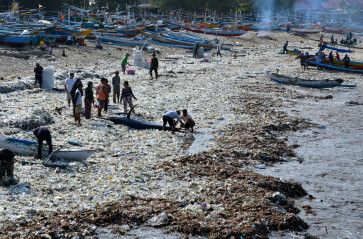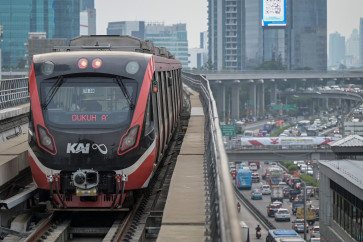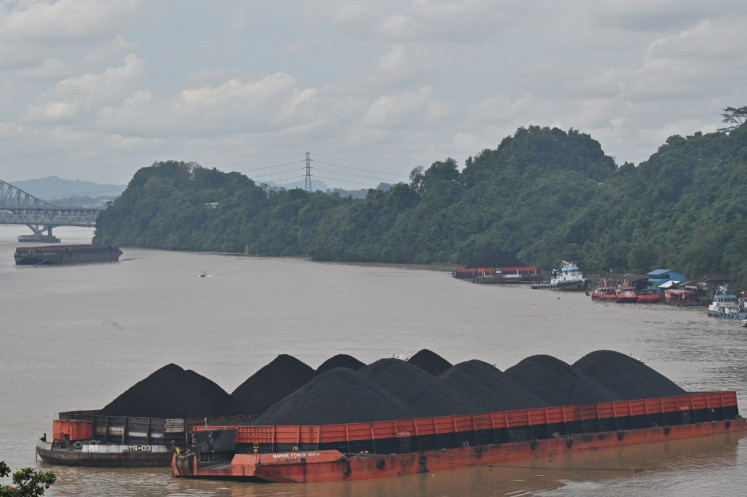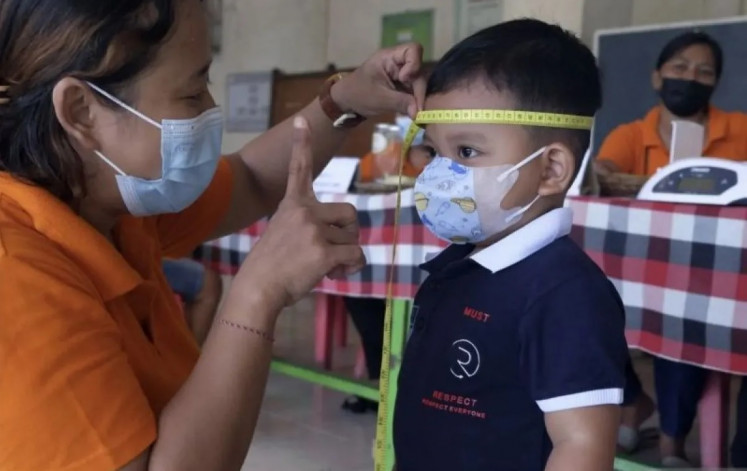Govt amends rules on bonded zones
The Finance Ministry has revised the regulation on bonded zones to accommodate the interests of local manufacturers by extending the transition period for the relocation of factories located in bonded zones to the so-called industrial estates
Change text size
Gift Premium Articles
to Anyone

T
he Finance Ministry has revised the regulation on bonded zones to accommodate the interests of local manufacturers by extending the transition period for the relocation of factories located in bonded zones to the so-called industrial estates.
The ministry also agreed to extend the deadline for companies to terminate all outsourcing contracts for the development of products or services tied directly with their core business activity.
With the revision to the regulation, companies located in bonded zones with a size of less than 10,000 square meters have an additional two years until Dec. 31, 2016, to move to industrial estates.
With regard to outsourcing, the companies are given until Dec. 31 this year to terminate the specified contracts.
“We hope this adjustment can accommodate the concerns of our businessmen as well as maintain our efforts to secure our domestic market from abuse of facilities available in bonded zones.”
Speaking at a press conference at the Indonesian Employers Association’s office on Wednesday, Deputy Finance Minister Mahendra Siregar said companies that were accustomed to outsourcing the manufacture of their main products should be able to use their capacity to become the principal manufacturers and export their products directly.
The outsourcing companies, he said, could benefit from import tax cuts provided under the KITE facility, which was available to all exporters regardless of the location of their production sites.
The initiative to move companies into industrial estates is aimed at improving the control of the flow of goods in and out of bonded zones, which at present are vulnerable to smuggling. In 2011, there were 73 cases of facility abuse, such as subcontracts without permits and smuggling of raw materials, mainly in the textile and garment industry.
Currently, there are 1,557 firms located in bonded zones dispersed throughout the country, including North Sumatra, Banten, Greater Jakarta, West Java, Central Java and East Java.
Apindo chairman Sofjan Wanandi welcomed the government’s move to revise the regulation, saying that it was a breakthrough to prevent abuse of bonded zone facilities while also paying attention to the interests of local manufacturers.
“Along with the extension period for subcontract work by small and medium enterprises, the government also provides a system which is supervised by customs and excise,” he said at the press conference.
The Indonesian Textile Association’s (API) Ade Sudrajat agreed, saying that he supported the government move to ensure the function of bonded zones to boost exports. However, he said that the government had to launch other supporting incentives soon to encourage upstream industry.
“We hope there will be other schemes for the upstream industry launched after this regulation,” he said.
Earlier, API criticized the allocation of 75 percent of the output of bonded zones for export and 25 percent for the domestic market, which would only work for downstream industries, as it would cause a shortage of materials if most upstream output went overseas.









